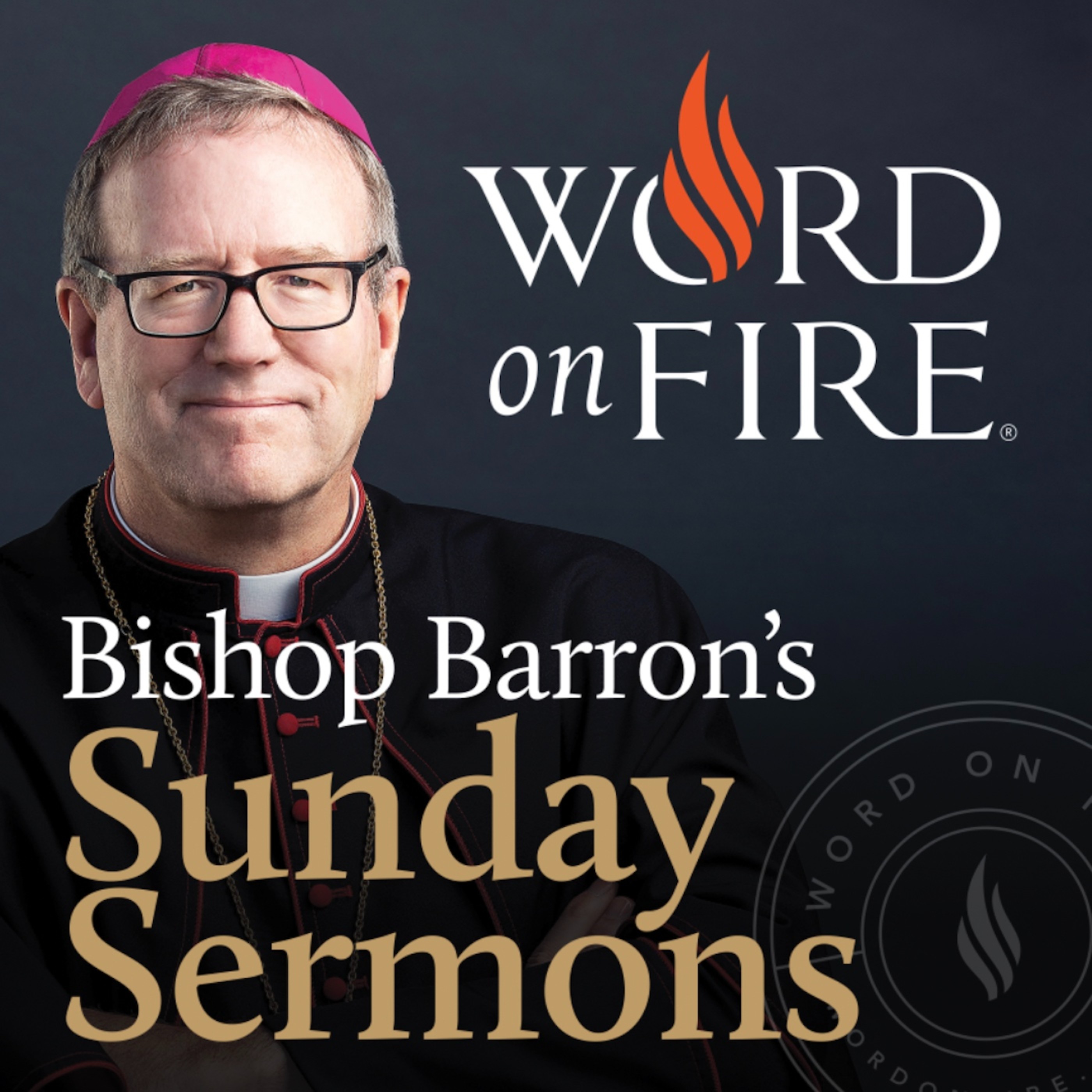

Bishop Barron’s Sunday Sermons - Catholic Preaching and Homilies
Bishop Robert Barron
A weekly homily podcast from Bishop Robert Barron, produced by Word on Fire Catholic Ministries.
Episodes
Mentioned books

Apr 7, 2021 • 15min
Life in the Church
Friends, today’s Gospel reveals the dawning of Christianity. With his wounds bared to his disciples immediately upon his arrival in their midst, Christ shows to us also our greatest sins in those nail and spear scars. God came, and we killed him—but no sin is greater than the Lord’s love, and so he arose, offering us peace and forgiveness beyond all understanding.

Mar 31, 2021 • 15min
Breaking Out of the Tomb
Friends, a blessed and peaceful Easter to you!
Although grave sites are known to be quiet places of reflection, God, through his sovereign power, overcame the corruption of sin by his Resurrection from the dead this Easter morning. From his empty tomb, we learn that God doesn’t let death have the last word—and thereupon hangs the tale of Easter.

Mar 24, 2021 • 14min
Breaking, Singing, Pulling Away
Friends, one of the best known stories in Western culture is the narrative of Christ’s Passion and death. However, this very familiarity can block our understanding of the account. What I want to do in this homily is to draw your attention to three odd details of Mark’s Gospel, each of which packs a punch spiritually.

Mar 17, 2021 • 16min
Writing the Law Upon Our Hearts
Friends, one of the most fundamental beliefs of the Biblical Israelites is that God is a covenant-maker. He formed his people through a series of agreements and contracts saying, “I will place my law within them and write it upon their hearts; I will be their God and they will be my people.” This law comes into our hearts precisely through the Eucharist, which is nothing other than a representation of the cross of Jesus.

Mar 10, 2021 • 15min
Nicodemus Came at Night
Friends, our Gospel for today contains one of the most important lines in the entire Bible: “For God so loved the world that he gave his only Son, so that everyone who believes in him might not perish but might have eternal life.” To “believe” here means much more than to accept the truth of an idea; it is to enter into the space opened up by the death of the Son of God. When you do that, you are born again; when you do that, you have eternal life.

Mar 3, 2021 • 16min
Back to the Fundamentals — Bishop Barron’s Sunday Sermon
Friends, I have often said that Lent is a bit like basic training for the military or summer workouts for a football team—it is a chance to get back to the fundamentals of the faith, namely, the Ten Commandments. In this homily, I look at each of the Ten Commandments, using them as an examination of conscience for this Lenten season.

Feb 24, 2021 • 14min
The Ordering of Love and the Awful Story of Abraham and Isaac
Friends, if the intention of an author is to convince people to read and think about what he’s written, the author of Sunday's first reading has done his job well. We hear the deeply troubling story of Abraham’s willingness to sacrifice his own son, Isaac. How do we reconcile God’s love with his asking Abraham to kill his own son? How should we take the fact that Abraham was willing to follow through with it? And what does this mean for how we must order our own lives?

Feb 18, 2021 • 16min
Pray, Fast, Give Alms
Learn about the significance of Lent and discover three essential practices:praying, fasting, and giving alms. Explore different prayer practices, including the Rosary and gospel meditation. Understand the importance of identifying dominant desires and giving alms as a tangible expression of love and generosity.

Feb 10, 2021 • 14min
Go Tell the Priests
Friends, today’s Gospel centers around Jesus’ healing of a leper. Although there aren’t many lepers around today, there are plenty of people that we treat as outsiders or pariahs. We should welcome them as Jesus does.

Feb 3, 2021 • 15min
How to Evangelize
Friends, in this Sunday's readings, St. Paul highlights the significance of evangelization. The Church, by its very nature, evangelizes, going out to the ends of the world with its good news. And woe to us if we fail to do this! Paul urges us to organize our lives around mission, and to even move out of our comfort zones to do so.


